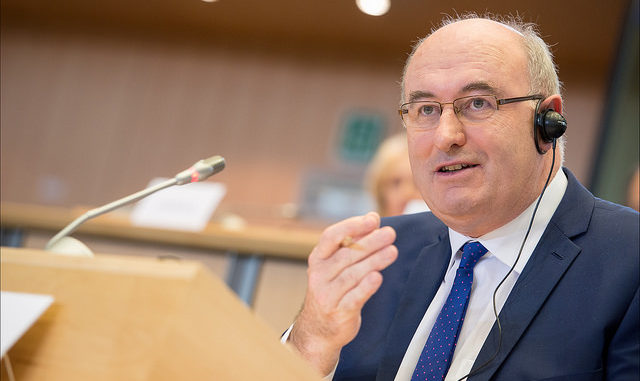
CAP Simplification Cuts Inspections & Greening
20% the number of inspections and even more adjustment to the lighter shade of pale that is greening. Simplification Hogan style. […]

20% the number of inspections and even more adjustment to the lighter shade of pale that is greening. Simplification Hogan style. […]

We need a new deal – a new citizen focused CAP. Guest post by Pete Richie of Nourish Scotland. […]

The UN climate talks in Paris have ended with an agreement between 195 countries to tackle global warming. What do the agreements mean for the future of our food and agriculture?

NewsFlash August-September 2015 […]

NewsFlash June 2015 […]

Newsflash April-May 2015 […]

Written By: Derek Freitas, Eco Ruralis Staff The Republic of Moldova is the 22nd largest wine-producing country in the world. For such a small country, it certainly grows a lot of grapes. Agritourism is on the rise and so is the market for its wines all across Europe but are there enough economic opportunities for small-scale producers? And how does the export focus of the national government affect the genetic diversity of grapes? Recently, Eco Ruralis staff made a visit to find out more. The land of the Republic of Moldova has a long and rich history of grape and wine production dating back to the Dacian times. The first grape vines were here around 7,000 BCE and for 5,000 years wine has been made – so, they are pretty good at it! Generations and generations of people living in the countryside have produced wine for family consumption and local trade which is still the case today. There are 4 historical wine regions: Valul lui Traian (south west), Stefan Voda (south east), Codru (central), and […]
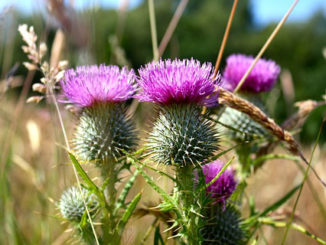
Most EU countries and regions have now declared their intention to not grow GM crops. In the UK, this means everywhere – except England, as Peter Crosskey reports. […]
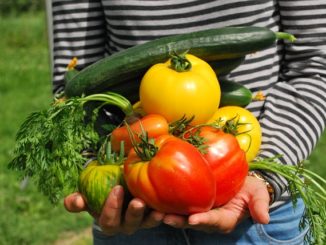
The UK’s Growing Livelihoods scheme to foster smaller-scale food growing has added a further five projects to the pilot phase it launched last year. The new arrivals in the Growing Livelihoods family are Bristol’s Beacon Farms, the Cwm Harry Cultivate group in south Wales, Cloughmills Community Action Team in Northern Ireland, the Cornish Tamar Grow Local group and Falkland Small Growers in Fife. The Tamar Grow Local group will convert an agricultural building into a shared packhouse, meeting space and office. This will extend the existing support for new market gardeners, who will be able to work together and establish new routes to market. With the Falkland Estate earning organic certification in May this year, two new businesses have been set up to establish a network of local growers. Falkland Kitchen Farm and Meadowsweet Organics are part of a plan to share equipment and services such as marketing organic crops. Cloughmills Community Action Team is building a geodesic dome, like the Eden Project, in which hydroponic salad crops will be grown, alongside mushrooms raised on […]
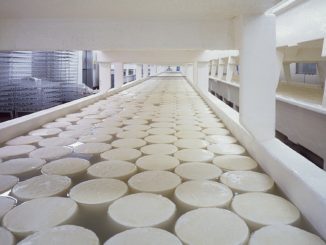
A broad alliance of German organisations has published an open letter to German Minister of Agriculture Christian Schmidt. […]
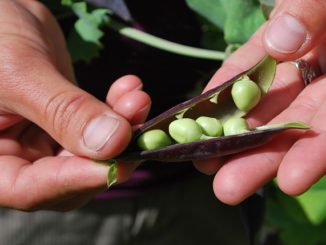
A workshop aiming to focus on learning from a new wave of food initiatives which are contributing to strong and lasting urban-rural links and are creating the foundations for a new generation of local development strategies. […]
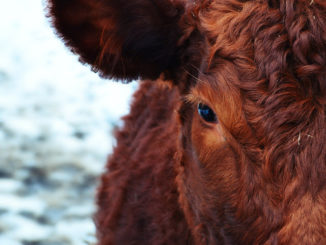
Agroforestry – saving the world with meat and sport | ARC2020 […]
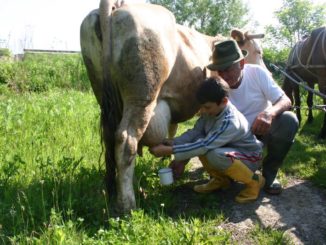
Romanian milk farming: from one crisis to another. […]

UPDATED 17/09/2015 at 12.42 CET (with US Chamber of Commerce information in final paragraph) Critics have rounded on yet another fudge by the EU Commission on the highly controversial ISDS – Investor State Dispute Settlement – element of TTIP – the Transatlantic Trade and Investment Partnership. Today at midday, the Commission announced “a new Investment Court System which would replace the ISDS mechanism in all on-going and future EU investment negotiations.” It “has approved its proposal for a new and transparent system for resolving disputes between investors and states – the Investment Court System. This new system would replace the existing investor-to-state dispute settlement (ISDS) mechanism in all ongoing and future EU investment negotiations, including the EU-US talks on a Transatlantic Trade and Investment Partnership (TTIP).” The Commission’s First Vice-President Frans Timmermans said “With our proposals for a new Investment Court System, we are breaking new ground. The new Investment Court System will be composed of fully qualified judges, proceedings will be transparent, and cases will be decided on the basis of clear rules. With this new […]

What would people–centred food governance look like? This is the crucial question to be addressed in Edinburgh, Scotland 22-23rd October. BOOK NOW Nourish Scotland, in cooperation with ARC2020, will host “Towards a Citizens’ Agricultural Policy” an event which will gather citizens, farmers, civil society, and representatives from regions and cities to rethink the governance of food and farming policies in Europe and Scotland. According to Nourish Scotland “our food system is failing to support a healthy, well-nourished population, while driving dangerous climate change and destroying natural capital. The Common Agricultural Policy is a colossal public policy intervention, using 39% of the EU budget and shaping the farming policies of Member States. It could drive improvement in public health, rural economies, and sustainable food and farming; but it doesn’t. And it won’t until our food system is governed democratically for the common good.” Confirmed speakers Alyn Smith is a Scottish Member of the European Parliament & Member of the Committee on Agriculture and Rural Development. David Barnes is Chief Agricultural Officer for Scotland. Nora McKeon is […]
Agricultural and Rural Convention